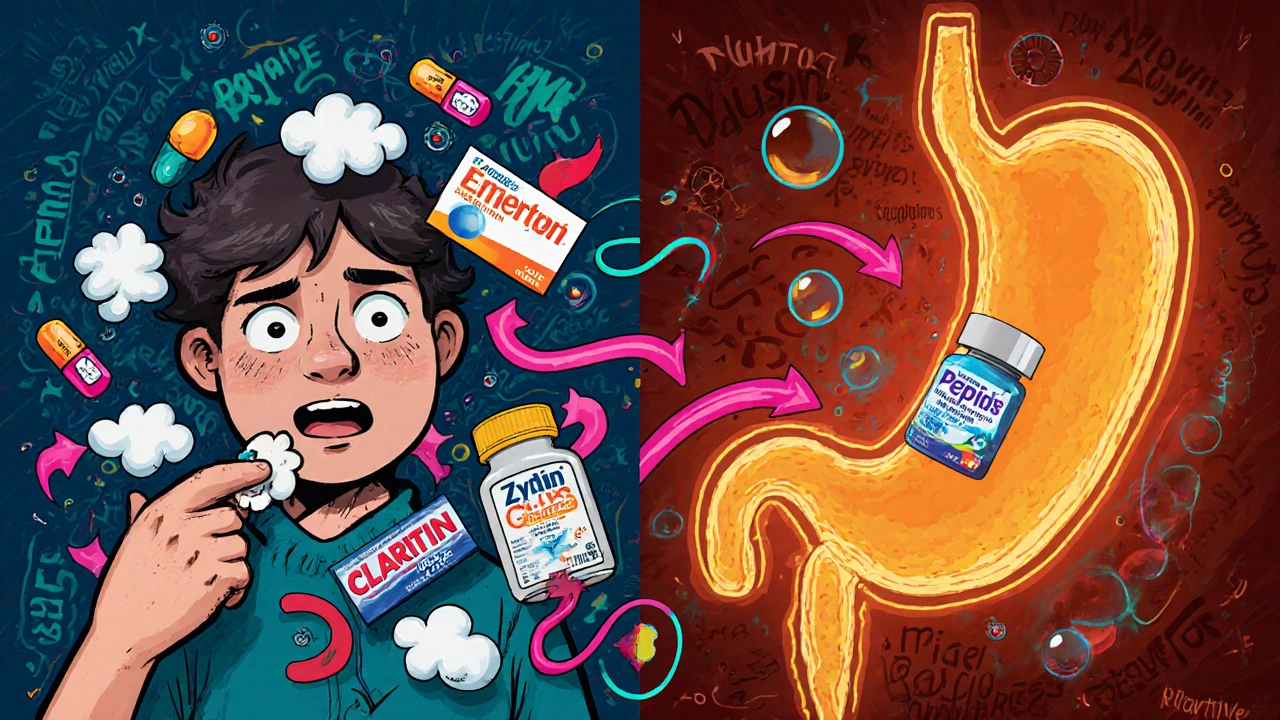Antihistamines: What They Are, How They Work, and Which Ones Actually Help
When your nose starts running, your eyes itch, or you break out in hives for no clear reason, it’s usually your body’s overreaction to something harmless—like pollen, dust, or pet dander. That reaction is driven by histamine, a chemical your immune system releases during allergic reactions, triggering inflammation and classic allergy symptoms. antihistamines, a class of drugs designed to block histamine from binding to receptors in your body. They don’t cure allergies, but they stop the symptoms fast. And they’re not all the same. Some make you sleepy. Others let you drive, work, or play without a drop of drowsiness.
There are two main types: first-generation and second-generation. First-gen antihistamines like diphenhydramine (Benadryl) cross into your brain and cause drowsiness—great for nighttime relief, terrible for daytime use. Second-gen ones like loratadine (Claritin), cetirizine (Zyrtec), and fexofenadine (Allegra) were made to stay out of your brain, so they work just as well without the fog. seasonal allergies, a common trigger for antihistamine use, often flare up in spring and fall when pollen counts soar. But if you have year-round allergies, to dust mites, mold, or pet hair, you might need daily antihistamines to stay comfortable. Some people even use them for non-allergic itching, like from bug bites or skin irritation, because histamine plays a role there too.
Not all antihistamines are created equal. Ketotifen, for example, is both an antihistamine and a mast cell stabilizer—used for eye allergies and sometimes asthma. Others, like hydroxyzine, are prescribed for anxiety or nausea because they have a broader effect on the nervous system. But if you’re just trying to stop a runny nose or itchy eyes, you don’t need a strong prescription. Over-the-counter options work fine for most people. Just watch out for hidden antihistamines in cold and flu meds—you could accidentally double-dose. And if you’re on other meds, like antidepressants or sleeping pills, check with a pharmacist. Antihistamines can interact in ways you wouldn’t expect.
The posts below cover real-world comparisons and practical advice. You’ll find how ketotifen stacks up against other allergy drugs, what to pack when traveling with allergies, and why some people swear by one antihistamine over another. There’s no fluff—just clear, tested info on what works, what doesn’t, and how to use these drugs safely every day.

